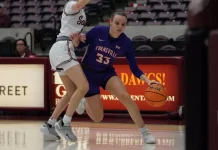Stephanie Terry exploring changes to city’s opioid settlement fund policies
Former Evansville Mayor Lloyd Winnecke previously opted not to publicly solicit proposals for how best to put opioid settlement dollars to use.
On Wednesday, the Courier & Press published a report detailing former Evansville Mayor Lloyd Winnecke’s decision to direct the city’s first round of opioid settlement funds to just two local organizations through a mostly private process, in part to avoid what Winnecke described as a potential wave of community organizations that lacked credible proposals claiming they “just need money.”
Terry’s communications director, Joe Atkinson, confirmed Thursday that the mayor’s office was in the early stages of conducting research to inform the revamped process. To date, the City of Evansville has not published a request for funding proposals or established a working group tasked with evaluating how best to spend opioid settlement funding, which the city will receive in annual batches for more than a decade.
Atkinson said he anticipates that additional information about the mayor’s plans could be released in the next few weeks. News of the policy change comes after Terry’s office told a local advocacy group this week that it would solicit proposals based on yet-to-be-determined criteria at a later date.
The former mayor, Winnecke, went so far as to ask both organizations, YouthFirst and Forefront Therapy, to keep quiet about the new settlement-funded partnership until he could unveil it during his 2023 State of the City address, according to a Courier & Press review of public e-mails.
Evansville’s city council approved allocating more than $640,000 to fund the partnership between YouthFirst and Forefront Therapy. The money will pay for a range of preventative and intervention-based services aimed at preventing adolescents and adults from developing substance use disorders, according to city contracts.
More:As fentanyl deaths soar, providers push new treatments, harm reduction
The source of the funding stems from lawsuits states and local governments brought against the nation’s largest opioid distributors and manufacturers: McKesson, Cardinal Health, AmerisourceBergen, Janssen Pharmaceuticals Inc. and Johnson & Johnson.
In 2021, the defendant companies agreed to pay billions of dollars over 18 years to settle claims that they worsened the nation’s ongoing opioid crisis.
Since then, other companies − including Walmart, CVS, Walgreens and pharmaceutical giant Teva − agreed to pay billions to settle similar claims that their practices contributed to thousands of opioid-related deaths, among other allegations.
At issue for Terry’s administration, according to Atkinson, is the need to create a research-informed application process whereby the city can solicit and evaluate potential funding proposals to distribute dollars most effectively. He said any future plans would be guided by principles and best practices identified by leading healthcare organizations, such as John Hopkins University.


 Houston Harwood
Houston Harwood

